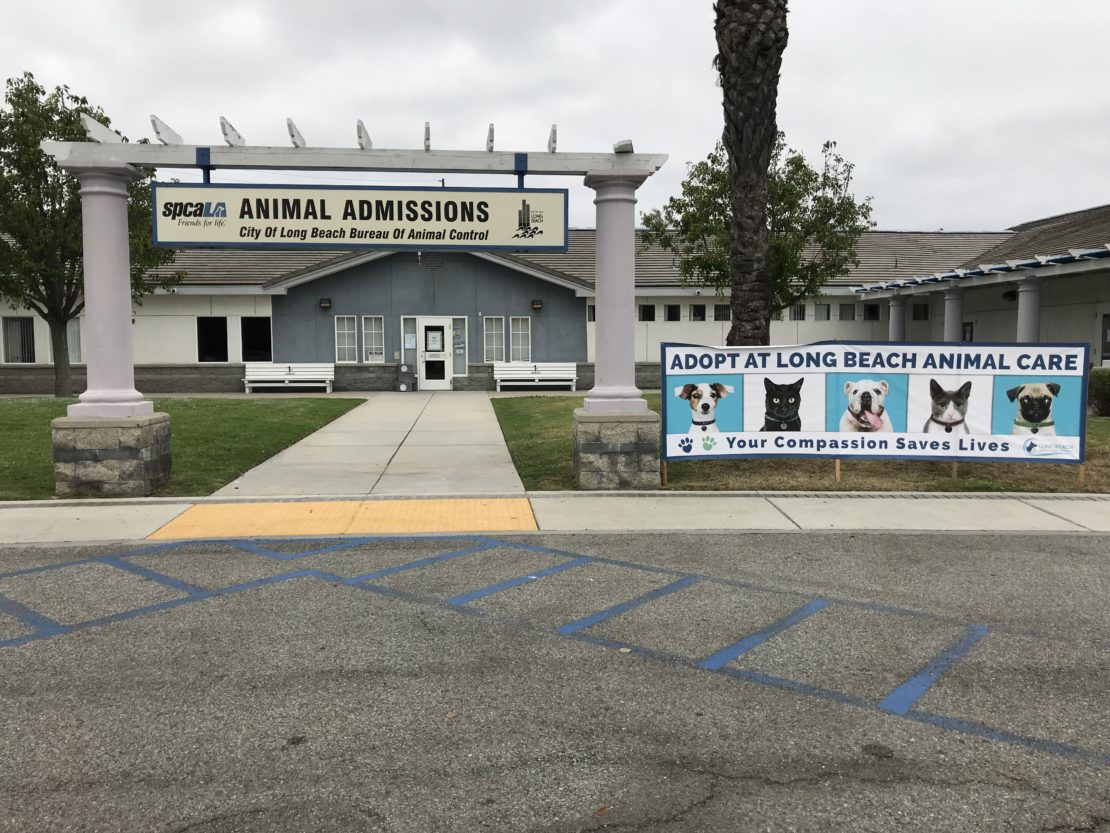A Sept. 25 public notice from the City of Long Beach reported a number of cats in the shelter at Long Beach Animal Care Services as testing positive for feline panleukopenia virus, or PVP, in the last 10 days. The disease is also known as feline distemper.
Panleukopenia is a feline virus that causes the infected animal to lose all defenses against any viruses or bacteria. It’s transmitted to the cat and spreads through an unvaccinated population through ingesting viral material through body waste during grooming, litter-box use or another area where multiple cats deposit their waste, and similar contact. Panleukopenia is deadly—it commonly strikes and kills 90% of unvaccinated felines and spreads to others, but it is easily prevented through vaccinating.
All felines 4 weeks old and over receive vaccinations from the shelter upon intake in order to stem the spread of any disease. According to a public notice released by the City of Long Beach, however, patient zero for the outbreak was likely an unowned and unvaccinated cat or kitten brought to the shelter, and the potential effect on the cat population has presented an emotional and logistic challenge to shelter staff.
“One of the signs of panleukopenia is sudden death and no other symptoms,” said shelter director Staycee Dains. “This is how we learned the disease was in the shelter—we encountered a cat that had died for no apparent reason. When we tested the cat for panleukopenia, the test came back positive. This happened three other times in different areas of the shelter. In other cases, cats were exhibiting signs or symptoms and were tested for the disease. Those that tested positive were euthanized.”
The panleukopenia outbreak isn’t the first challenge that Dains has dealt with since she took over management of the shelter early in the year. In August, the veterinary staff diagnosed ringworm in a number of kittens. Ringworm is a treatable fungal skin condition; the cats were quarantined and treated onsite, and Dains called on volunteers and her own family to foster and treat the kittens. Ultimately, an anonymous donor had the infected cats, 10 in all, transported to an Orange County veterinary hospital for treatment.
Ringworm is a walk in the park compared to panleukopenia, and Dains and the staff are implementing measures to protect the entire feline population.
“There are ways to reduce the risk, however, there is no way to prevent it altogether other than to euthanize any sick cat on intake, euthanize every kitten under 5 months of age, and quarantine all other animals for no less than two weeks after intake,” Dains said. “We are currently managing the disease appropriately by vaccinating on intake, isolating sick cats, limiting cross-contamination by proper use of PPE [personal protective equipment, which includes hospital gowns, plastic booties and latex gloves], and sanitizing all cages prior to new animals being housed in them.”
Staff and volunteers have been cleaning cat kennels since the outbreak was discovered. Animals in any room where the sick cats were housed will be isolated for the remainder of the 14-day quarantine, which is being monitored by a veterinarian. Sick cats are in isolation and separated from healthy cats, and staff is taking extra steps to decrease the risk of cross-contamination. This includes additional housing areas to effectively isolate the different cat population groups. Other local agencies including Best Friends, Stray Cat Alliance, and animal care services in the City of Los Angeles, Kern County and Riverside County. Experienced cat-rescue organizations and outside veterinarians will also assist in disease containment and management.

Cat owners must keep their cats up to date on their vaccines. The shelter stresses that FPV vaccines are highly effective and this disease is preventable. Members of the community also are encouraged to refrain from bringing cats to the shelter, if possible, until after the quarantine has been lifted.
Dains is tired but remains hopeful and motivated.
“We currently save over 90% of all of our cats and dogs, including kittens,” she said. “We thank those members of our community who ensure their compassion saves lives and we encourage others to join us.”
Dains is asking any shelter volunteers who want to help clean the cages to contact her at [email protected] or [email protected] to learn the proper procedures.

